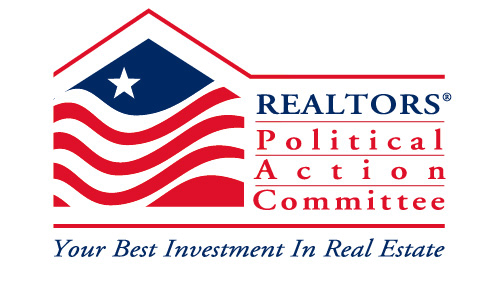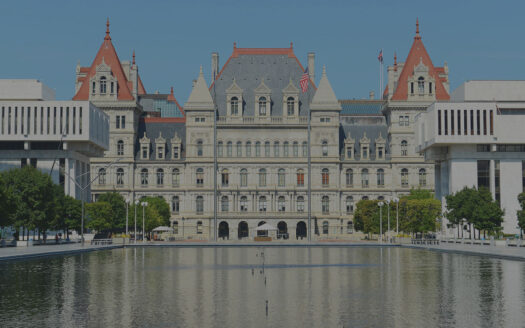RPAC FAQ
Mis-Click? Let it Stick!
While submitting dues payments members sometimes tell us they have mis-clicked on the RPAC contribution button and contact the board office for a refund because they contributed by accident. When it comes to legislative support and advocacy, there are no accidents. RPAC is the muscle behind NAR, NYSAR and GCAR members’ ability to do business unencumbered by the constant flow of restrictive laws, regulations, and policies continuously proposed at the local, state and national levels.
Why should I invest in RPAC?
RPAC is the muscle behind NAR. RPAC represents more than 1.3 million REALTORS®.
100% of your investment is used to elect candidates at the local, state, and national levels who both understand and support REALTOR® issues. RPAC looks to build the future by putting dollars in places that will help advance the interests of REALTORS®. RPAC is the only political group in the country organized for REALTORS® and run by REALTORS®. RPAC exists solely to support issues important to REALTORS®. Candidates who receive support from RPAC are not selected based on their political party or ideology, but solely on their support of real estate issues. Our legislative allies are members of the REALTOR® Party. The REALTOR® Party supports the issues that are important to you as a REALTOR®, regardless of political party affiliation.
What is a PAC?
A Political Action Committee (PAC) is a popular term for a political committee organized by like-minded people for the purpose of raising and spending money to elect and defeat candidates. The PAC’s money must come from voluntary contributions from members rather than the member’s dues treasury. PACs represent business, labor, or ideological interests.
How does RPAC establish fundraising goals?
RPAC establishes its fundraising goals through various formulas and criteria. The National RPAC Fundraising Goal is derived from the aggregate total states/territories declare as the amount they intend to raise in voluntary hard and soft dollars annually at the local, state, and national levels. Before a two-year election cycle begins, the Federal RPAC Disbursements Allocation is set by the RPAC Fundraising and Disbursements Trustees Committees during the REALTORS® Legislative Meetings & Trade Expo, which is the amount NAR is requesting from states/territories in order to remain effective at the federal level and is based on membership size.
Who may be solicited for RPAC contributions?
According to Federal Election law, RPAC may solicit only individual members—i.e., non-corporate members of NAR and their families. The term “members” means all individuals who currently satisfy the requirements for membership in any one of the local, state, and/or the National Association and regularly pay dues.
Executive, administrative and management personnel of the local, state and/or national associations are also considered under the NAR constitution to be members of the association and may be solicited even though they may not pay association dues.
Are contributions to RPAC tax deductible?
No. Contributions used for political purposes are not tax-deductible on your federal income taxes.
Does the National RPAC contribute to state or local candidates?
Under the cooperative agreements in effect between the National RPAC and the state association’s Political Action Committees, the responsibility for making contributions to federal candidates is assigned to the national RPAC, while state association’s Political Action Committees decide which state and local candidates to support.
How much money stays with the state association and how much goes to the National RPAC?
The National RPAC maintains voluntary cooperative agreements with the state association’s Political Action Committees. Each state association decides how they want to raise money and when to send it to National. Regardless of how states choose to meet their goals, 30% of funds raised must be forwarded to NAR for Major Investor Recognition. Each dollar of this 30% that is forwarded to NAR counts toward that state’s goal.
What is the difference between hard (personal) and soft (corporate) money?
Hard money has many restrictions on how it is raised and spent and must be fully reported to the Federal Election Commission. Hard money is raised from individuals, who can contribute up to $2,400 directly to a federal candidate per election and $5,000 to a Political Action Committee, like RPAC, per year. RPAC may contribute $5,000 to a federal candidate per election. RPAC may only accept money from individuals.
Soft money is raised from corporations, associations, unions, and individuals. Federal candidates cannot accept soft money. There are no limitations on the amount of soft money a corporation or individual can contribute, nor is there any limitation on the amount of soft money an organization can spend.






